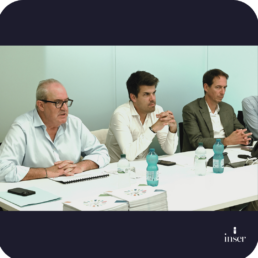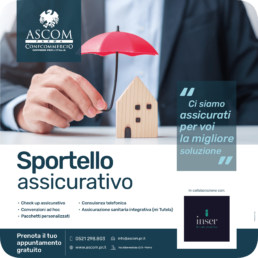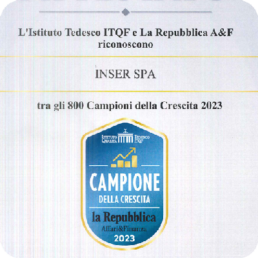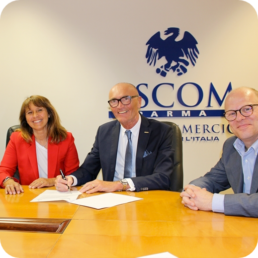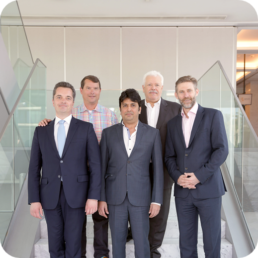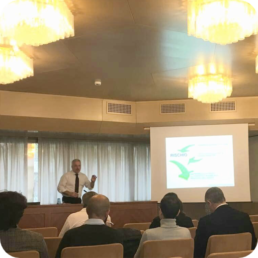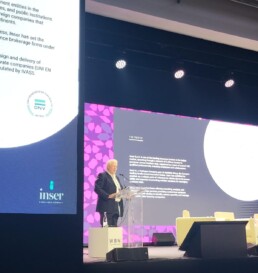Towards a sustainable future: Inser's commitment to ESG initiatives
Towards a sustainable future: Inser's commitment to ESG initiatives
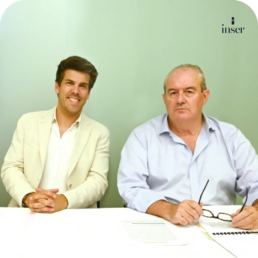
Find out how Inser is integrating sustainability and social responsibility into its business model to make a positive impact on the environment, society and governance.
At the beginning of 2024, Inser embarked on a determined journey towards environmental, social and governance (ESG) sustainability, adopting the philosophy of its parent company, the Verlingue Group. Over the next five years, our company will implement corporate policies aimed at achieving Verlingue's four ESG pillars: customers, society, employees and the environment. To this end, Inser has already begun to work in synergy with insurance companies to offer products that have a positive impact on corporate sustainability. These include lower premiums for electric cars and optimised risk management to mitigate potential environmental impacts. Although the understanding and assessment of ESG risks in Italy is still in its infancy, we are committed to using these new parameters to make more informed investment decisions.
INSER's commitment to ESG, here are the first results
INSER has focused on gender equality, with a "pink presence" of over 50%, and on flexible working to improve the quality of life of its employees. An intelligent working policy, extended to two days a week for employees with special family needs, has resulted in an annual saving of 65,520 km and 8,714 kg of CO2. This experimental phase demonstrates Inser's commitment to reducing its impact on the environment. In the same vein, a calendar of collective closures and the practice of "short Fridays" has been introduced, with offices completely closed during the summer months. This initiative not only contributes to significant energy savings, but also supports the well-being of employees by allowing them to enjoy more free time during the summer period. Digitisation is another important pillar of Inser's ESG strategy. By digitising its archives, the company has almost completely eliminated the need for paper.
In addition, 80% of the majority of e-learning courses planned for 2025 will focus on environmental awareness and the professional development of employees. In addition to e-learning courses, Inser has a clear vision for internal skills development through the Inser Verlingue Academy.
In terms of compliance, Inser has adopted a L.231-compliant organisational model with a code of ethics and a set of guidelines on data protection and information sharing. In terms of office organisation, Inser invests in next-generation IT equipment and food dispensing systems that meet the highest standards of energy efficiency. We are also committed to recycling waste and improving the energy performance of our buildings, further reducing our environmental impact. Finally, Inser is committed to supporting local communities through charity programmes and sports sponsorship, demonstrating a strong local connection and commitment to social welfare. By 2028, Inser aims to reduce its CO2 emissions by 20%.
Pierpaolo Ruggeri, CEO of Inser, said: "Every action we take is a commitment to a more sustainable and responsible future. Through a concrete and measurable commitment, we want to demonstrate that sustainability and business success can go hand in hand, benefiting not only the environment but also the people and communities around us.
News
Inser supports Gas Sales Bluenergy Volley Piacenza
Inser supports Gas Sales Bluenergy Volley Piacenza

Inser is proud to support Gas Sales Bluenergy Volley Piacenza
Inser, an Italian insurance broker controlled by Verlingue (Adelaïde Group), is proud to announce its support to the Gas Sales Bluenergy Volley Piacenza volleyball team. The club, protagonist of an extraordinary season in the men's volleyball Serie A, has conquered the first place in the standings with 6 consecutive victories and only one point lost so far. A result never achieved in the previous 21 seasons, which projects Piacenza to the top of the championship.
With the first half of the season approaching, Gas Sales will face crucial challenges against top-level teams such as Civitanova, Trento, Verona and Perugia. With no European commitments, the team will be able to focus exclusively on the championship, aiming with determination at the top of the standings.
The partnership between Inser and Gas Sales Bluenergy Volley Piacenza stems from shared values: dedication, team spirit and a constant search for excellence. For Inser, this partnership is a way to get even closer to the sports community and support their passion for volleyball. It is a way to strengthen our role as promoter of sporting values and commitment, confirming us as an important presence not only in the insurance sector but also in the national sports scene.
News
Verlingue consolidates its position in Europe with the acquisition of ProConseils Solutions
Verlingue consolidates its position in Europe with the acquisition of ProConseils Solutions
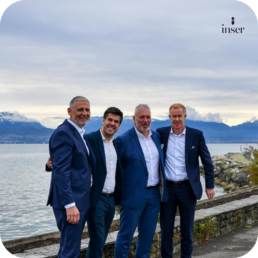
The insurance broker Verlingue, a subsidiary of the Adelaïde Group, announces its acquisition of ProConseils Solutions, a major player in the insurance brokerage market in French-speaking Switzerland.
This strategic operation will enable Verlingue to strengthen its position in the Swiss market by broadening its range of services and expertise in the field of insurance coverage for businesses, local authorities and medico-social establishments.
ProConseils Solutions was founded in 2003 and is acknowledged for its tailor-made customer approach and commitment to quality. With a staff of almost 25 employees based in three offices in the Canton of Vaud, ProConseils Solutions works with more than 1,500 companies, nearly 150 local authorities and 30 medico-social establishments, providing them with optimised solutions for managing their insurance coverage.
This acquisition is fully in line with Verlingue's Better Future 28 strategic plan, which aims to reinforce the company's presence in Europe and expand the territorial coverage of its business, based on an ambitious project bringing together local actors with a shared vision.
Benjamin Verlingue, Chairman and CEO of the Adelaïde Group, explains that:
"The acquisition of ProConseils Solutions marks an important step in our growth strategy in Switzerland and Europe. We share strong values with ProConseils Solutions, notably close relations with our customers and service excellence. Joining forces will enable us to provide all our customers – whether in Switzerland or in the other countries in which we operate – an even broader range of expertise and solutions that are increasingly tailored to their needs."
Alain Bornand and Joseph Gelsomino, co-Founders of ProConseils Solutions, underline the fact that:
"Becoming part of Verlingue and the Adelaïde Group is a real opportunity for our customers and our staff. We will be able to provide even better services and draw on the Group's technical expertise and international dimension. It will also enable us to continue to develop ProConseils Solutions in French-speaking Switzerland, both through our existing teams and through possible acquisitions. ProConseils Solutions is entering a new phase in its existence and we are looking forward to sharing this with our customers, partners and staff."
Marco Buholzer, CEO of Verlingue Switserland, notes that:
"With this acquisition, we will reinforce our position in French-speaking Switzerland, which is a key market for Verlingue. ProConseils Solutions will bring valuable local expertise and excellent market knowledge. Together, we will be able to provide innovative solutions that are tailored to our customers' needs throughout Switzerland."
With this acquisition, Verlingue will help the Adelaïde Group achieve its objective of becoming the leading family-owned insurance broker in Europe by 2028.
News
Trade credit insurance: tools, benefits and opportunities for businesses
Trade credit insurance: tools, benefits and opportunities for businesses

On Wednesday 20th November '24 the webinar "Credit Insurance: Benefits and products available to companies" was held, sponsored by the Union of Industrialists of Parma (Upi) in collaboration with the Artisan Business Group and Inser, an insurance broker of the Verlingue Group.
This training event was a key opportunity for companies to get an up-to-date overview of best practices and solutions for managing trade credit risk.
The webinar, which opened with institutional speeches by Natalia Baldassi, head of Upi's Credit and Finance Department, and Michele Larini, head of Inser's Parma office, featured two experts in the field: Manuel Gentili and Paolo Brusamarello, respectively head and senior manager of Inser's specialised credit department. Thanks to their contributions, the participants were able to learn about the characteristics of credit insurance policies, from options for the domestic market to international cover, including customisable formulas such as Whole Turnover (domestic and international), Medium Long Term, Single Risk and Level II or Top Up solutions.
Among the topics discussed was the important competitive advantage that credit insurance can offer over other risk mitigation tools. Experts presented concrete examples of how these solutions enable companies to protect themselves against insolvency, thereby ensuring greater financial stability. In particular, credit insurance provides greater peace of mind in managing the risks associated with late or uncollected payments, offering protection that goes beyond national borders and is adaptable to each company's specific needs.
This appointment aims to meet the growing need of Italian companies to effectively manage credit risk, an increasingly pressing challenge in a complex and ever-changing economic environment.
News
The Public Administration’s liability for damage caused to third parties by Wild Animals
The Public Administration’s liability for damage caused to third parties by Wild Animals

The liability of Public Authorities for damage caused by wildlife: a legislative and judicial evolution imposing new obligations on the State.
In classical Roman law, damage caused by animals was attributed to the owner or user on a purely objective basis. Later, Justinian law introduced a fault-based liability system.
Today, the general criterion for attributing such liability is found in Article 2052 of the Italian Civil Code (c.c.), which presumes ownership (or, in any case, use) of the animal rather than a duty of custody. From a causal perspective, the damage must be directly connected to the animal's actions, with the burden of proof on the injured party to establish causation. However, this burden is met if the liable party cannot demonstrate the existence of a fortuitous event.
As for damage caused by wild animals (traditionally considered res nullius), case law previously denied the Public Administration’s liability, as Article 2052 c.c. was deemed applicable only to damage caused by domestic animals.
This position changed with Law No. 968 of 1977 (now Law No. 157 of 1992), which reclassified wildlife as part of the State’s inalienable assets. Consequently, the Public Administration’s liability under Article 2052 c.c. now extends to damage caused by animals used for institutional purposes as well as by wild animals.
Recently, the Supreme Court of Cassation, in Judgment No. 17253/2024, stated:
For Further Reading:
- Court of Cassation, Judgment No. 17253/2024;
- Law No. 968 of 1977;
- Law No. 157 of 1992.
News
Damage caused by a metal bar on the motorway: the operator Is not liable if "fortuitous event" is proven
Damage caused by a metal bar on the motorway: the operator Is not liable if "fortuitous event" is proven

The case
In 2018, a motorist travelling on a motorway collided with a metal bar approximately 3 metres long, which had fallen moments earlier from a lorry driving ahead of the car.
Unable to identify the lorry driver, the car owner filed a lawsuit against the Motorway Consortium, seeking damages under Article 2051 of the Italian Civil Code (c.c.).
The Court of Cassation, with Order No. 25079/2024, provided a legal solution to this recurring issue.
Reasons for the decision
In this case, the court-appointed expert's report revealed that the accident occurred because a lorry driving ahead of the claimant’s vehicle had lost the metal sideboard, which the claimant’s car subsequently struck. Specifically, the sequence of events demonstrated the sudden and unpredictable change in the state of the custodian’s property. This fortuitous event effectively broke the causal link, thereby negating the custodian's objective liability.
Therefore, the custodian of a publicly accessible road is responsible for original defects, unless it is proven that the suddenness of the alteration made it unreasonable to expect intervention to prevent potential harm.
For further reading:
- Court of Cassation, Order No. 25079/2024
- Court of Cassation, Judgment No. 24179/2023
News
Inser and Centurioni Rugby: a partnership that goes beyond sport
Inser and Centurioni Rugby: a partnership that goes beyond sport

Inser supports Italian rugby by supporting the Centurioni in their journey
Inser, which has always supported local sport, has chosen to sponsor the Centurioni Rugby, a team from Lumezzane in the province of Brescia. A commitment that aims to promote the values of inclusion, determination and teamwork, typical of this sport.
Like Inser, the Centurioni Rugby is a local team that stands out for its commitment both on and off the field through its collaboration with social cooperatives that work in the field of disability: Progetto ‘Gaia’, Cooperativa ‘il ponte’ di Villa Carcina, Società atletica Olympus and Cooperativa CVL di Lumezzane (SPAZIO FORMA). Inser, through its sponsorship, contributes to supporting the team's growth and participation in various sporting events, including friendly matches and national tournaments.
A moment of great pride for the club was the recognition received by the Centurions' president, Ottorino Bugatti, who was awarded the FIR Sporting Merit. This prestigious award, conferred by the Italian Rugby Federation, is in recognition of his extraordinary contribution to national rugby, and is a testament to the value of the sports project supported by Inser.
This partnership embodies the principles of passion, commitment and continuous growth, helping to strengthen the link between sport and community. An example of how support for sport can turn into an investment in the values that make a team great, on and off the field.
News
Late payment of the Anac contribution: the exclusion measure is unlawful
Late payment of the Anac contribution: the exclusion measure is unlawful

The case
Through an appeal filed with the Regional Administrative Court of Friuli-Venezia Giulia, the appellant company challenged the exclusion measure issued against it for failure to pay the Anac contribution within the deadline set for submitting the bid.
The Ministry of the Interior and Anac appeared in court to oppose the appeal.
With ruling no. 289/2024, the judges upheld the company’s appeal for the following reasons.
Reasons for the Decision
According to the judges, the decision is based on three key points:
1) Article 1, paragraph 67, of Law no. 266 of 2005, which should be interpreted to mean that a bid is admissible as long as the contribution has been paid, even if not on time;
3) The principle of procedural regularisation, which applies when the exclusionary cause (or the obligation to pay the contribution) is not clearly evident because it was not included in the special tender specifications.
Additionally, the Court of Justice of the European Union has declared that, in cases where an economic operator is accused of failing to comply with an obligation not explicitly established by the tender law or national law, the principles of equal treatment and proportionality must be interpreted to allow the operator to rectify its position and fulfil the obligation within a deadline set by the awarding authority.
For further reading:
- T.A.R. Lazio Rome, no. 16458/2024;
- Article 1, paragraph 67, Law no. 266/2005;
- Article 10, Legislative Decree no. 36/2023.
News
ESG: Inser obtains the Synesgy Certificate
ESG: Inser obtains the Synesgy Certificate

Synesgy Certificate: a step forward in corporate sustainability
Inser (Verlingue Group) recently achieved a first milestone in its journey toward sustainability, obtaining the Synesgy Certificate with a “C - Satisfactory” score. This achievement is a step forward in the ESG Project of the BETTER FUTURE28 Strategic Plan, which, among its goals, aims to create a positive impact on the environment and align with ESG policies.
The achievement of the Synesgy certificate
Inser was assessed using the Synesgy scoring model developed by the CRIF Ratings Agency (CRA). This tool allowed a detailed assessment of the company's level of sustainability in the five main areas of the questionnaire: Business, Environment, Social, Governance and Industry.
The achieved score of “C” indicates a satisfactory level of sustainability, in line with national best practices and conforming to international reporting standards such as the Global Reporting Initiative, European Sustainability Reporting Standards and Sustainable Development Goals. And it confirms Inser's commitment to a more sustainable future.
The ESG project and BETTER FUTURE28
Inser's ESG project is an integral part of the BETTER FUTURE28 strategic plan, which and aims to balance economic performance with social performance, ensuring lasting benefits for all stakeholders. This project was initiated with the aim of enhancing the commitment to sustainability, in accordance with European directives and the Italian Agenda 2023.
Inser is aware of the importance of Corporate Social Responsibility (CSR) policies that generate concrete positive impacts in the economic, social and environmental sectors. By obtaining the Synesgy Certificate, the company, laying the foundation for further improvements in future ESG performance.
Inser's commitment to the future
The company is determined to implement a detailed action plan that includes concrete initiatives to reduce environmental impact, improve corporate governance and strengthen social policies.
The company's commitment is to promote transparency and accountability, ensuring a balance between economic growth and environmental and social sustainability.
News
Inser joins WBN international network
Inser joins WBN international network

Inser, which is part of Verlingue, an international broker of the Adelaide Group, joins the international WBN network to expand its global insurance service offering
Inser takes an important step in its international expansion journey by joining the Worldwide Broker Network (WBN), the world's leading network of independent brokers, present in more than 100 countries. This milestone, a result of Inser's membership in Verlingue, strengthens Inser's ability to assist domestic and international clients with tailored insurance solutions adapted to global challenges.
With more than 530 offices and more than 20,000 employees worldwide, the WBN network is a key resource for Inser. Through this network, the International Division will have access to specific expertise and unprecedented geographic coverage. This allows it to support clients wherever they operate, offering local and international insurance solutions with maximum control and regulatory compliance.
David Lee Rodriguez, Head of the International Division, said, “Joining WBN allows us to expand our network of correspondents, strengthening our international presence. This partnership will enable us to offer even more qualified services, both for our outgoing clients expanding their business abroad and for incoming clients operating in Italy”.
The strength of the WBN network lies in its ability to provide technical and legal support in each country, ensuring compliance with local regulations and managing complex insurance programs through coordination among local partners. Services offered include:
- Risk management activities on a global scale;
- consulting on compliance and local legislation;
- coordination and optimization of international insurance programs.
By joining WBN, Inser positions itself as a partner of choice for companies operating on an international scale, ensuring competitive and customized insurance solutions. This new chapter confirms our commitment to accompanying companies on their growth paths, offering them integrated and secure risk management.























